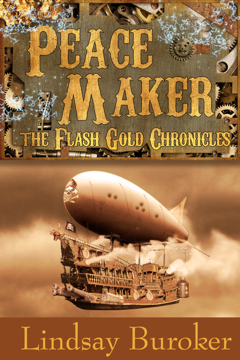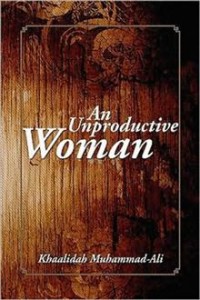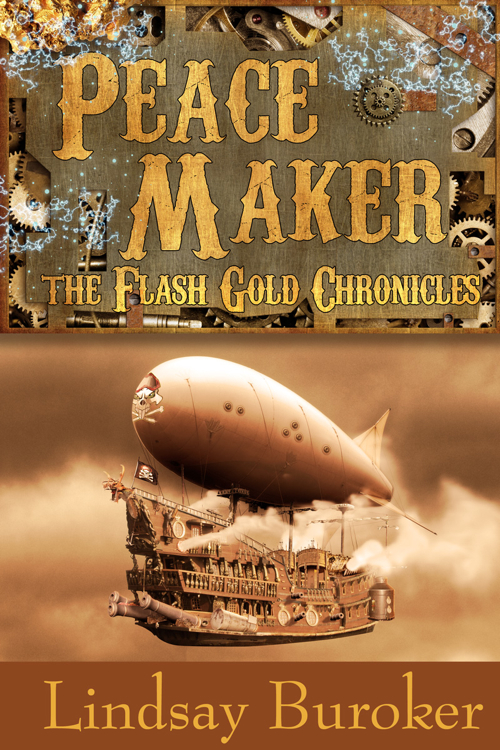In the fourteen or fifteen months I’ve been involved with the self-publishing scene, I’ve heard of quite a few independent authors being picked up by major publishers. In some cases, they were noticed and in other cases, they decided to approach agents after proving that they’d developed a fan base and could sell books. Hearing about stories like that is what prompted me to write “Best Way to a Traditional Publishing Deal: Query Agents or Self-Publish?” a couple of months ago.
I have another data point to add to the mix: me.
Earlier this week, an acquisitions editor from Amazon’s new SF/F/H imprint, 47North, contacted me about my Emperor’s Edge series. I wasn’t expecting anything like that, because I’m not a huge seller, at least not by the standards of the indie authors I’ve seen get picked up, but the editor said that she (after seeing how many awesome reviews you guys have left for the books!) checked out the series and enjoyed it.
So, I find myself with a couple of new options to consider. I can stay independent, and continue to do things my way, or I can sign on with a publisher and have a chance at being discovered by a wider audience. If I were to decide I’m interested in the latter, there’d also be the question of whether to sign on with Amazon or to perhaps look for an agent. It’s possible that if one publisher is interested, others may be too, and even if that’s not the case I’d be a little leery about signing contracts without someone around to decipher the fine print.
As far as signing up with Amazon goes, the idea is intriguing and scary at the same time. I’ve heard Robin Sullivan talk about some of the old-school boilerplate contracts that the Big 6 publishers use, and they don’t sound author-friendly, especially to an author who might want to do the hybrid thing and continue to self-publish some titles. From what I’ve read from JA Konrath and other authors who have signed with Amazon, the company seems to be more progressive and flexible. A concern, though, is that there’s a lot of anti-Amazon sentiment out there right now, and, if I went through them, I wouldn’t necessarily be able to walk into a Barnes & Noble and find my book on the shelf.
One of my reasons for making a blog post out of this is that I’d love to hear what you guys think.
Right now, I’m leaning toward staying indie for the immediate future, but I want to keep an open mind too. I’ll get to see a contract in the next week or so, just to get an idea of what exactly is on the table. In the meantime, I’m mulling over pros and cons.
Pros of Going with a Publisher
- Help with marketing and a chance to reach a larger audience — A traditional publisher could get print copies of my books in all the stores, and, while Amazon might not be able to guarantee that, I imagine the expose at Amazon alone could make a huge difference in sales. As a traditionally published author, it’d be easier to get reviewed on the big book blogs as well.
- Not having to deal with the little things — Having cover art done, ebooks formatted, paperbacks formatted, etc. isn’t necessarily that time consuming if you’re just doing one book, but, when you’re publishing often, it does start to feel like these non-writing aspects eat up quite a bit of time each week.
- More chance of recognition in the biz — This isn’t much of a motivating factor for me, but as a traditionally published author, I’d be able to join the SFWA, get onto panels at cons, and be eligible for awards and such (I’m trying not to snort my latte at the idea of someone giving my goofy characters a serious literary award… though Maldynado would be tickled). And, of course, you can say things like, “I had lunch with my agent/editor today…” in casual conversation with friends, and that’s guaranteed to make you sound extra cool.
Cons of Leaving the Indie Life
- Earning less per book — It’s hard to know how things would balance out (maybe I’d sell many more books overall and end up doing better), but it’s tough to beat the 70% cut you take home as a self-published ebook author. At the end of the day, you can make a very nice living as an indie author when you’re selling 1,500-2,000 ebooks a month, so you don’t necessarily need to be a bestseller (for new indies who think those are huge out-of-read numbers, check out my post on “What Can We Learn from JA Konrath’s $140,000 Month?” where we peep at his sales numbers and point out how much being in the biz for a while and having a lot of titles out helps).
- Less control on every level — Traditionally published authors don’t get much, if any, say on things like cover art, publication dates, and price points. Also, you’re working with an editor now. That could be a really good thing, if you agree with the changes your editor suggests, and the books are better overall, but I’d imagine it could mean making changes you’re not 100% behind at times as well.
- Slower publishing process — Let’s face it: nothing is speedy about the traditional system. I wonder if I’d have even found an agent by now if, back in November of 2010, I’d chosen to start querying folks instead of jumping straight into self-publishing. Because I chose the indie route, I’ve managed to get four books out already (along with my short stories and novellas), and I’ve already made it to the point where I’m making enough to do this for a living, if a modest one.
- Infrequent sales reports — One of the things that I love about e-publishing is that you can log into the Amazon or B&N digital platforms and check your sales stats any time you want. If you’re running some kind of promotion or advertising campaign, this lets you get real-time feedback on whether something is working. Traditionally published authors get royalty statements a couple of times a year, and that’s the only way they have any idea how many books they’re selling.
So, those are some of my thoughts at the moment. As I mentioned, I’d love to hear what you guys think.
UPDATE: My decision here (thanks for the feedback, all!).

 Peacemaker is now out and available at
Peacemaker is now out and available at 
 I’ve had a couple of comments left in the bowels of the blog of late that lead me to think that I should say more about newsletters than, “You should have one.” Okay, my article on
I’ve had a couple of comments left in the bowels of the blog of late that lead me to think that I should say more about newsletters than, “You should have one.” Okay, my article on 


